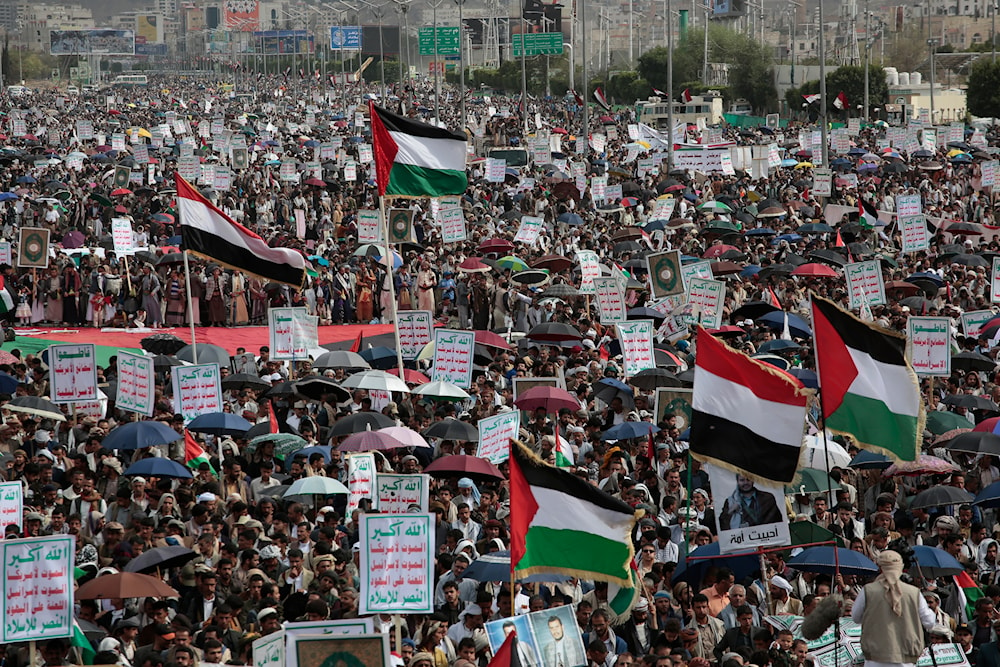Sanaa says operations to continue, escalate until war on Gaza ends
The head of the Supreme Political Council in Yemen condemns the crimes being committed in Gaza and pledges that military operations will continue until the genocide stops.
-

Yemenis attend anti-"Israel" and anti-US protests in Sanaa, Yemen, June 14, 2024
Mahdi al-Mashat, the president of Yemen's Supreme Political Council, condemned Saturday "all Zionist-American-Western crimes against the Palestinian people."
Al-Mashat reaffirmed Yemen's unwavering support for the Palestinian people in their struggle for self-defense, stating, "Yemen fully supports the Palestinian people's right to self-defense until they completely liberate their land, expel the occupiers, and free al-Aqsa Mosque."
He also praised the honorable and practical support extended to the Palestinian people from Lebanon, Iraq, Syria, and Iran.
"The fourth phase of banning navigation to Zionist ports will continue until the aggression stops and the blockade on the Gaza Strip is lifted," al-Mashat stressed.
Moreover, al-Mashat confirmed the ongoing support of Yemen's armed forces in operations against the Israeli occupation on land, sea, and air.
Operations continuing
Yemeni leader Sayyed Abdul-Malik al-Houthi discussed Friday the latest developments on the Yemeni front, revealing that support operations under the "Promised Victory and Holy Jihad" battle have conducted 11 operations this week alone. These involved 31 ballistic and cruise missiles, drones, and a warship.
He noted that the number of targeted ships has now reached 145, all connected to the Israeli occupation, the United States, and Britain. He explained that this escalation is part of the fourth phase and is progressing into more significant stages.
Sayyed al-Houthi detailed several intensive activities focusing on technical and tactical advancements to increase effectiveness, overcome enemy interception and jamming capabilities, and provide operational momentum, including improvements in information technology.
In light of these Yemeni operations, he confirmed that the United States is attempting to pressure Yemen due to its popular and official stance, which includes exerting pressure on the humanitarian front.
He added that Yemen's position has resulted in the American inability to safeguard Israeli movements at sea.

 2 Min Read
2 Min Read








